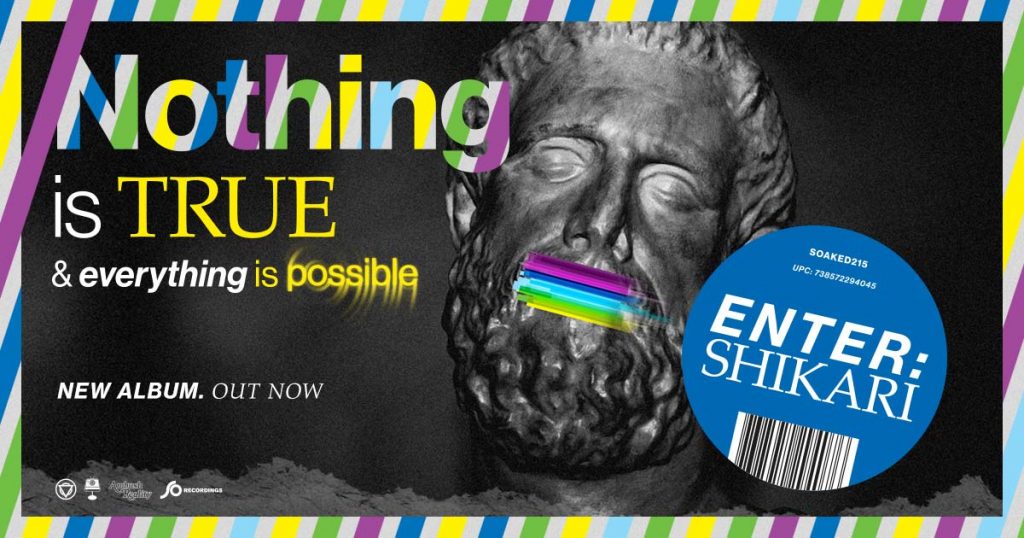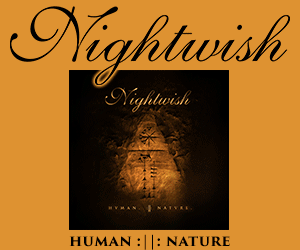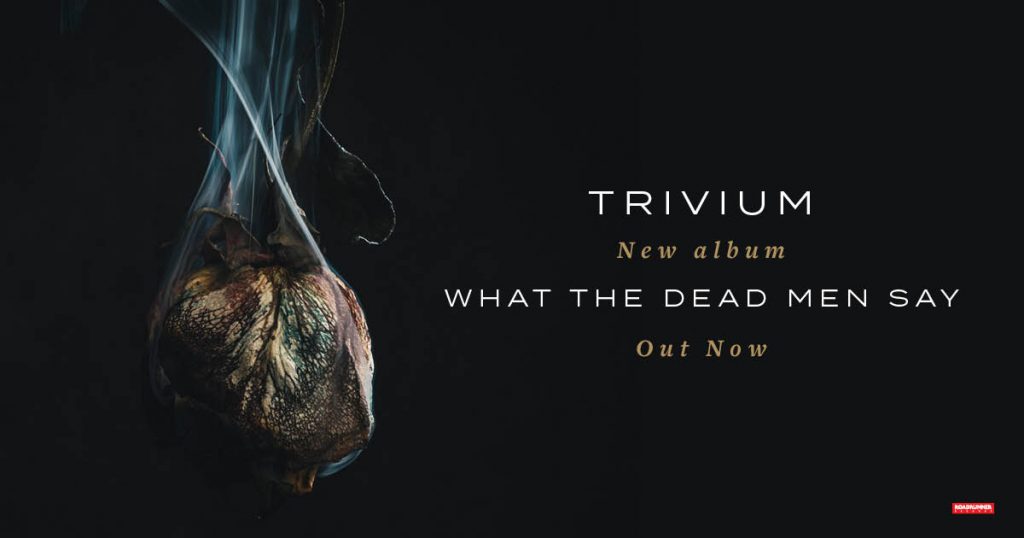Dani Filth dishes on how he got into horror and how he actually made Tony …
If you really want it, you’ll get it: Polish death metal grandfathers Vader are living proof.
MORE: PARKWAY DRIVE: Triumph Of The Underdogs // BLACK TRILLIUM: Turn Loose The Draconian Serenades REVIEWS: THE BLACK DAHLIA MURDER: Verminous // TRIVIUM: What The Dead Men Say // VADER: Solitude in Madness // BLACK TRILLIUM: The Fatal Shore
Releasing their sixteenth studio album this year, Solitude in Madness, their first was a struggle against Communist bureaucracy, language barriers, and making their own instruments in their basements. In the 1980s, all but the basic staples were out of reach for the average Pole. Bootlegging and running tapes of underground music from all corners of the world, Piotr ‘Peter’ Wiwczarek was hooked on contraband extreme sounds coming out of the decadent West. Now in the age of Spotify and passport-free travel, their trials are a distant memory; but no less important today for the emerging and triumphant ex-Eastern Bloc metal bands. We spoke to Peter about their latest album and the long hard road they paved to get to where they are today.
Hysteria: You guys took a different turn on Solitude in Madness, recording in the UK instead of Poland. Tell us how that all came about.
Peter: the main point that we changed the studio now after 15 years of recording with Wiesławski Brothers in Hertz Studios in Poland, so it was about time to change the lane. Change the atmosphere and after some moves, we chose Grindstone Studio in England and Scott Atkins as the producer. For totally four weeks, but spread in time for the whole summer. We’re just working in England and definitely that was a good decision, because Scott gave us new spirit for Vader music. It sounds refreshed, the sound and the band. Actually, that was absolutely a good decision.
Where did you write all or the most of the material? Did you write it in the studio or did you have it sort of ready to go when you approached Grindstone, or a bit of both?
We are busy guys, we toured a lot so actually the ideas, the riffs, they collected as composed. For years, actually I was ready to enter the studio at the end of 2018 just as the situation actually forced us to wait with that. The whole session was delayed, but as I said the ASS team here. I just need time in the studio to put them all together into three songs and you’re right actually. For many years, probably just the very album recorded back in 1992 was ready before we entered the studio. But, actually the band was already existing for around 10 years, so that was time to prepare. I personally like to work in the studio, because I know that if you know the song’s done, recorded. You’ve still got the chance to change something, if I feel something like that.
The final result is important and the way how you reach that, it’s really important for listeners or our fans. The songs here, the process of recording was pretty much the same way. We started recordings in May with the drum tracks and then a problem started because the session was delayed. We were about to start touring at the same time, so that’s why the session was spread. It was divided into four sessions actually, so it was solely four weeks we spent in the studio to make the album.
Since we started in May, the album, the master tape was done end of August. It took a little bit more than expected, I hated doing that way, but we had no choice actually. The session was delayed and we started touring, so I didn’t want to just cancel the tour just because we wanted to set up the studio.
Would you rather one unbroken session, to capture the fire while it’s fresh? If you go and come back, it might change the dynamic.
Actually, the main core of the album was already actually prepared like all the riffs and some ideas I had already in my head. What we did in the studio was the creativity process. I was working Was with James the drummer, because that’s the backbone and everything starts with the drum tracks. Actually, the first week, we’re just working hard in the studio with the drums being changing something in the song. You get the whole picture of the song, it’s very easy to make it and work with that. It is spontaneous, but not as spontaneous at work. This is just actually how we worked for different case already, so nothing really special in that.
Everything starts with the pioneers, somebody must break the wall and actually we were among those guys. We were the band that broke the wall, so we just started something. We just opened the doors.
[ Peter Wiwczarek ]
Your first album was in ’92 but you’d been around about ten years before that. During Solidarity. Where there was one Polish metal band, you sort of “fathered” a whole generation; Behemoth, Decapitated, what have you. Is that something you’re proud of?
No, it just happened. We are born ‘alien’ and we’re inspired by alien bands. Maybe, not just that, maybe one of the reasons why we’re just really do into that. The passion was so high and I was, and I am a huge fan of metal. I wanted to give a little bit more than just listening, so we started a band and that was the beginning. We wanted to play more extreme, so me and Vader were among the bands that started Polish extreme metal aground. Was not the only band that started, but just too many really good bands just gave up in the meantime so Vader was one of those who lasted. We were that kind of guys that never gave up because of a little problem and in those days in Poland in ’80s and beginning of ’90s just everything was a problem. Sometimes, I try to explain that situation to the new generation because it’s really hard to understand how could we live with even no internet, no mobile phones? That was just crazy, but it was more about there was no instruments.
What do you mean, no instruments?
We had no money to buy professional gear so everything was handmade somewhere in the basements. Amplifiers or something by friends. The only thing we had was passion, but the passion was just enough to survive that time and make it through. Then, the real thing started after signed a deal with Earache Records. That was a big deal, Earache was symbolic for all of us. They had bands like Napalm Death, Morbid Angel, Carcass. To be there was out of question. We had some propositions from some record companies around the world, but we’re never thinking about this one. That was just more than wow, so after the first album was recorded in England by the way. We just hit the road for the first time in the west with Bolt Thrower in Europe, then Deicide and Suffocation in the west. That was an opportunity to show up for a really good crowd. Actually, first time the people, the fans saw Vader in action and we really feel good on stage. That’s the meaning of Vader’s existence.
We thought that’s the strong part of Vader, since then we’re active bands and the fans know what to expect from Vader so we just develop what we’re doing. We play death metal, we play intense music since the very beginning which adds some new things but we’re just not following trends. We’re not changing within the trends and the metal changed so much in the meantime behind us, but actually Vader stayed Vader. I’m sure that we have respect because of that with the fans for many years already. Of course, pioneers. We were kind of proud for Polish, not just bands but also for people because that brought hope that even behind the Iron Curtain. Even living in a bad situation, you can do something and somebody can see that, and respect that. Somebody outside of Poland, anywhere. That’s why from 20 years, even today for many persons Vader became a symbol. Not just because music we played, because what would happen and what we gained in those … What we raised in all those days.
Immediately, we had followers like Decapitated, like Behemoth. They became really famous. Everything starts with the pioneers, somebody must break the wall and actually we were among those guys. We were the band that broke the wall, so we just started something. We just opened the doors.
Back then we had something like analogue internet. Tape trading was pretty good way to stay in touch in the whole world. Actually, the postman was like guest in my house every day. He didn’t know any songs, he would always bring letters and packs to my house and I was afraid that secret service going to visit me because it was just too much.
[ Peter Wiwczarek ]
But you opened that door. For young men who’ve never seen the Capitalist west before, that would have been mindblowing.
I really wish what you said, but it was not. It was not really easy, trust me man. First, we had a problem. Just to get away, to have a passport those days. Back then, that was a horror. The tolls and papers you have to fill out, it was absolutely crazy. Bureaucracy is still devastating Poland, but back then that was just crazy. System didn’t want to let people go out just to see how the people. in the west lived because system tried to explain to Polish citizens that socialist communist system is the best. That was the only way to lockdown the borders and don’t let people get out. Actually, when we travelled to England to record it was ’92 already. That was just actually about to change, so it was not that bad situation already. Still, not nice, but not that bad.
We had not much time, because the budget was like it was but we are happy that we can get out. We can record in England and that was absolutely crazy. That was like adventure for us, so nobody of us really was able to speak perfect English. Communication was far from being even decent, so if I can compare the recording in England for the last album and the first album.
Going from home-made to pro gear would have been insane.
It’s like different world, totally different world. That’s why I’m definitely not that guy that likes the sound of the first album. I totally understand the fans that really enjoyed this unique sound of that album but it was not unique because [it was our choice.] It was unique, because we couldn’t do better. It was just all we could do back then, but I do not argue with options. We didn’t have any options. The main situation, it was not really nice but actually to be honest we were happy. We were proud of that, so it was adventure indeed. With all these recordings, the whole story about that and really big deal.
Your band has spanned the time where smuggling in tapes was the norm to where you can call up anything with a click of a button. It would have been a wild time.
There was no internet, so we could not spread music or contact with friends around like today. Back then we had something like analogue internet. Tape trading was pretty good way to stay in touch in the whole world. Actually, the postman was like guest in my house every day. He didn’t know any songs, he would always bring letters and packs to my house and I was afraid that secret service going to visit me because it was just too much. Letters from US, China, Singapore, Brazil. It just was crazy, but that was the only way and the only problem was we had to wait something a couple of months to have a reply.
Every time when I received a tape, I remember when I got the demo tape from Blasphemy or Immolation. It was such a great day, when the music came. Speaking of spreading music, of course we have tapes because tapes were the cheapest. You can just go somewhere and to just tape it, copy some music from somebody’s gramophone or tape. That’s why, the metalheads were travellers. We kept travelling to the friends in the cities just to copy some new music to have it. Spotify is the same today, just in the modern world. We don’t need just to copy, because everything is already right here. You just press the button and you get music you’re searching for just like that. Of course, it’s free almost we can say, but that’s good for the music and that’s fair. When we’re copied the tapes, we did it for free. Nobody gave a fuck if it’s legal or not, that’s the only source for us. The records were absolutely crazy in prices, it’s like you should spend the whole monthly payment for one album. One month of wages! But if you have passion, you break all the rules to get what you want. That’s all we had, so that’s a great thing.







